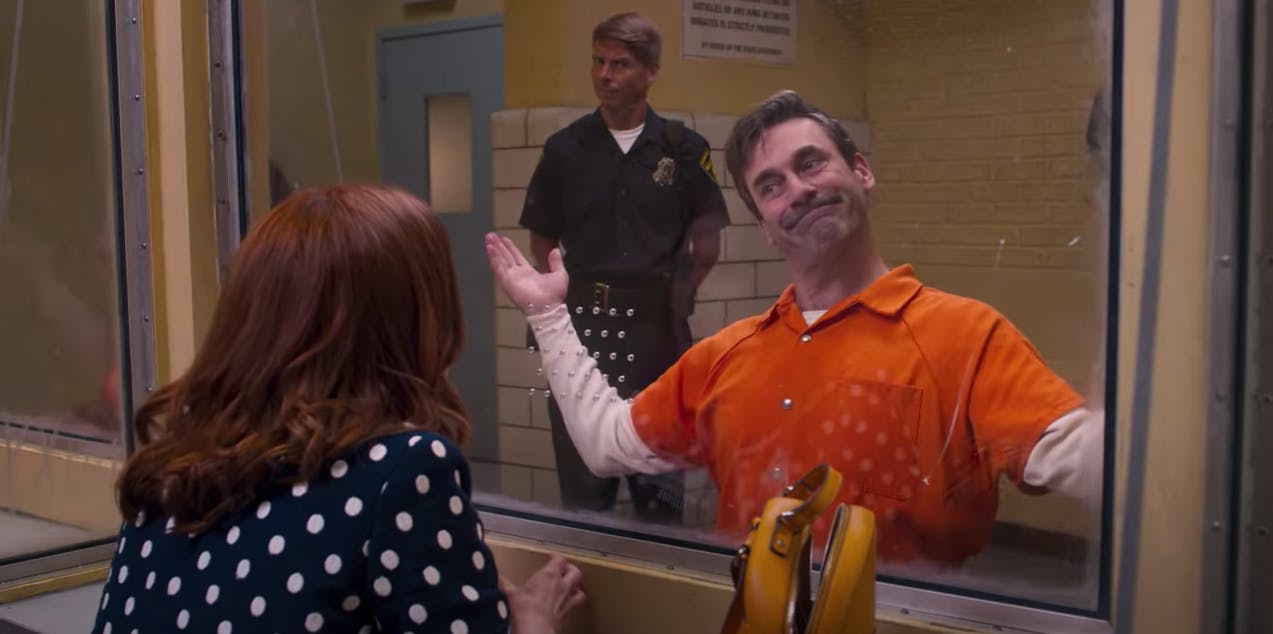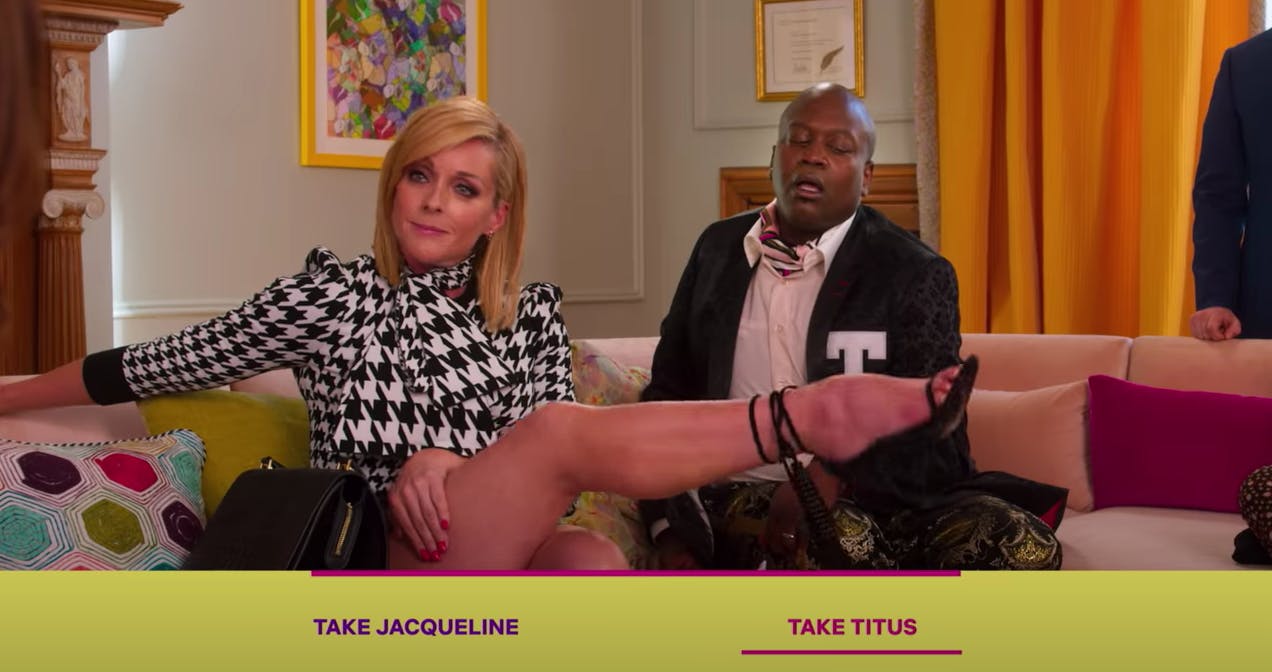I’m a Kimmy fan, and an interactive writer for Charisma.ai, so, yeah, I was excited to see the Netflix interactive Kimmy episode. In a world where everything feels wildly out of our control, interactive entertainment is there to take the sting out, give us a few hours of autonomy, and administer some relief.
Netflix’s interactive episode, Kimmy vs. the Reverend, is a choice-based drama with you at the control panel. Using your TV remote you make choices at regular intervals and control your way through a hilariously written and performed comedy.
But control alone is not the recipe for the autonomy and relief we crave from interactive stories and games. Control goes beyond simply pressing buttons. The dreaded feeling of insignificance is always closely waiting to rear its head, and it often does so after you’ve pressed the buttons.
For example, an early choice in Kimmy vs. the Reverend asks if you want to go with Jaqueline or Titus. It’s a difficult choice. Titus is hilarious, but so is Jacqueline. I’m invested... Time’s running out! I choose Jaqueline, I want to spend the next scene with Jaqueline (that dry humour gets me every time). Cut to a minute later and Jaqueline, and Kimmy (and you?) are dead, and you're back at the same point, choosing Titus. You made the wrong choice and a character actually tells you that. Access denied. This was before the opening credits.
So, okay, I died. We live and die. It was quite funny. But after my third “death” after a 50/50 choice, I started to get the looming fear that there’s a “right way” through this story. As soon as there is a “right way” then there is no longer “my way”.

My “right-way” alarm started blinking again, when after a decision on what Kimmy should do I was told “That’s not how Kimmy would react”. But… but… why did you offer it to me? It’s like being offered a plate of chocolate or a plate of cake and, on choosing the cake, being told it’s not your birthday. (Charisma.ai solves this through natural conversation, meaning there are no plates. You can’t pine for something you didn’t know was there!)
Now, I’m not saying that every choice should fundamentally change the plot. I know how quickly narrative branches can become exponential and create a script that is impossible to film and produce or even conceptualise in the first place. Users can’t have “their way” all the time, but we can make it feel like that’s the case, and that’s the wizardry of interactive writing.
Immersive, interactive, autonomous… whatever we call it, we want to feel like our choices matter and that we are being listened to, and not getting your own way can be part of that. For example, try skipping the opening credits in Kimmy vs. the Reverend using Netflix’s best feature: Skip Intro. SPOILER: It won’t let you. Instead it gives you more opening credits. You’re actively told “no, you can’t do that”. But instead of feeling snubbed, I was rewarded. Not with “yes, have it your way” but with a few minutes of extra joyful content which I didn’t know I wanted and have unknowingly been yearning for since I first heard that song. (Ooh dammit!)
The times when the interactivity sings are very satisfying, and there are many moments proving that interactive comedy as a form does work. One of my favourite choices in the game is choosing how the reverend got out of the prison (sneak or karate?) First, I chose sneak, and was rewarded with some great sneaking. On my second playthrough, I chose karate and I was rewarded, yet again, with extra content. Extra hilarious content. I was satisfied and it made replaying worthwhile. A satisfying choice doesn’t need to change the plot.
However, immediately after these bonus scenes, the story cuts back to Kimmy saying “It doesn’t matter how the Reverend got out!” ...What do you mean it doesn't matter? I feel a little snubbed for caring. Take that one line of dialogue out and that choice is another tally on the “satisfying” side of the scale.

Interactive writing is a balancing act of perceived control between audience and writers, but the balance in Kimmy vs. the Reverend feels off. Too many of the choices feel like 50/50 right or wrong, live or die choices. The feeling I walked away with was not one of control, or autonomy or immersion. It was a feeling of being really entertained by lots of quality content, whilst sitting on the outside, searching for the right route.
Kimmy vs. the Reverend felt more like a very charming treasure-hunt for endings, rather than an experience giving me the agency and involvement I’m craving from modern entertainment. Hopefully this will be one final homage to the ch*ose y*ur o*n ad*enture books we know and love, and now we can push forward with the possibilities of interactive storytelling in both form and content. Netflix, are you in?

All images copyright of Netflix.